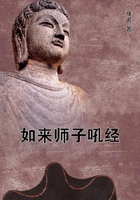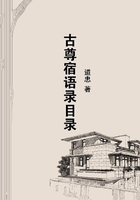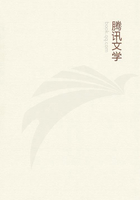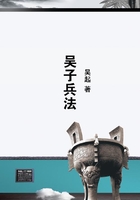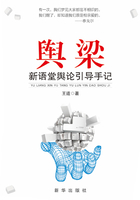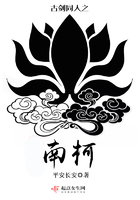In these first moments of poverty it was found necessary to raise a loan, for the funds of M. Collot did not last long, and 12,000,000 were advanced by the different bankers of Paris, who, I believe, were paid by bills of the receivers-general, the discount of which then amounted to about 33 per cent. The salaries of the first offices were not very considerable, and did not amount to anything like the exorbitant stipends of the Empire.
Bonaparte's salary was fixed at 500,000 francs. What a contrast to the 300,000,000 in gold which were reported to have been concealed in 1811 in the cellars of the Tuileries!
In mentioning Bonaparte's nomination to the Institute, and his affectation in putting at the head of his proclamation his title of member of that learned body before that of General-in-Chief, I omitted to state what value he really attached to that title. The truth is that; when young and ambitious, he was pleased with the proffered title, which he thought would raise him in public estimation. How often have we laughed together when he weighed the value of his scientific titles!
Bonaparte, to be sure, knew something of mathematics, a good deal of history, and, I need not add, possessed extraordinary military talent; but he was nevertheless a useless member of the Institute.
On his return from Egypt he began to grow weary of a title which gave him so many colleagues. "Do you not think," said he one day to me, "that there is something mean and humiliating in the words, 'I have the honour to be, my dear Colleague'! I am tired of it!" Generally speaking, all phrases which indicated equality displeased him. It will be recollected how gratified he was that I did not address him in the second person singular on our meeting at Leoben, and also what befell M. de Cominges at Bale because he did not observe the same precaution.
The figure of the Republic seated and holding a spear in her hand, which at the commencement of the Consulate was stamped on official letters, was speedily abolished. Happy would it have been if Liberty herself had not suffered the same treatment as her emblem! The title of First Consul made him despise that of Member of the Institute. He no longer entertained the least predilection for that learned body, and subsequently he regarded it with much suspicion. It was a body, an authorised assembly; these were reasons sufficient for him to take umbrage at it, and he never concealed his dislike of all bodies possessing the privilege of meeting and deliberating.
While we were at the Luxembourg Bonaparte despatched Duroc on a special mission to the King of Prussia. This happened, I think, at the very beginning of the year 1800. He selected Duroc because be was a man of good education and agreeable manners, and one who could express himself with elegance and reserve, qualities not often met with at that period.
Duroc had been with us in Italy, in Egypt, and on board the 'Muiron', and the Consul easily guessed that the King of Prussia would be delighted to hear from an eye-witness the events of Bonaparte's campaigns, especially the siege of St. Jean d'Acre, and the scenes which took place during the months of March and May at Jaffa. Besides, the First Consul considered it indispensable that such circumstantial details should be given in a way to leave no doubt of their correctness. His intentions were fully realised; for Duroc told me, on his return, that nearly the whole of the conversation he had with the King turned upon St. Jean d'Acre and Jaffa. He stayed nearly two whole hours with his Majesty, who, the day after, gave him an invitation to dinner. When this intelligence arrived at the Luxembourg I could perceive that the Chief of the Republic was flattered that one of his aides de camp should have sat at table with a King, who some years after was doomed to wait for him in his antechamber at Tilsit.
Duroc never spoke on politics to the King of Prussia, which was very fortunate, for, considering his age and the exclusively military life he had led, he could scarcely have been expected to avoid blunders. Some time later, after the death of Paul I., he was sent to congratulate Alexander on his accession to the throne. Bonaparte's design in thus making choice of Duroc was to introduce to the Courts of Europe, by confidential missions, a young man to whom he was much attached, and also to bring him forward in France. Duroc went on his third mission to Berlin after the war broke out with Austria. He often wrote to me, and his letters convinced me how much he had improved himself within a short time.
Another circumstance which happened at the commencement of the Consulate affords an example of Bonaparte's inflexibility when he had once formed a determination. In the spring of 1799, when we were in Egypt, the Directory gave to General Latour-Foissac, a highly distinguished officer, the command of Mantua, the taking of which had so powerfully contributed to the glory of the conqueror of Italy. Shortly after Latour's appointment to this important post the Austrians besieged Mantua. It was welt known that the garrison was supplied with provisions and ammunition for a long resistance; yet, in the month of July it surrendered to the Austrians. The act of capitulation contained a curious article, viz.
"General Latour-Foissac and his staff shall be conducted as prisoners to Austria; the garrison shall be allowed to return to France." This distinction between the general and the troops entrusted to his command, and at the same time the prompt surrender of Mantua, were circumstances which, it must be confessed, were calculated to excite suspicions of Latour-Foissac. The consequence was, when Bernadotte was made War Minister he ordered an inquiry into the general's conduct by a court- martial. Latour-Foissac had no sooner returned to France than he published a justificatory memorial, in which he showed the impossibility of his having made a longer defence when he was in want of many objects of the first necessity.

